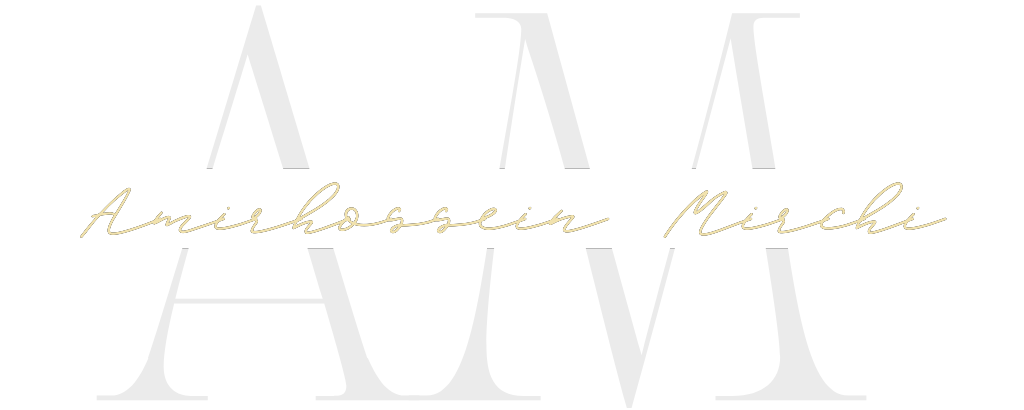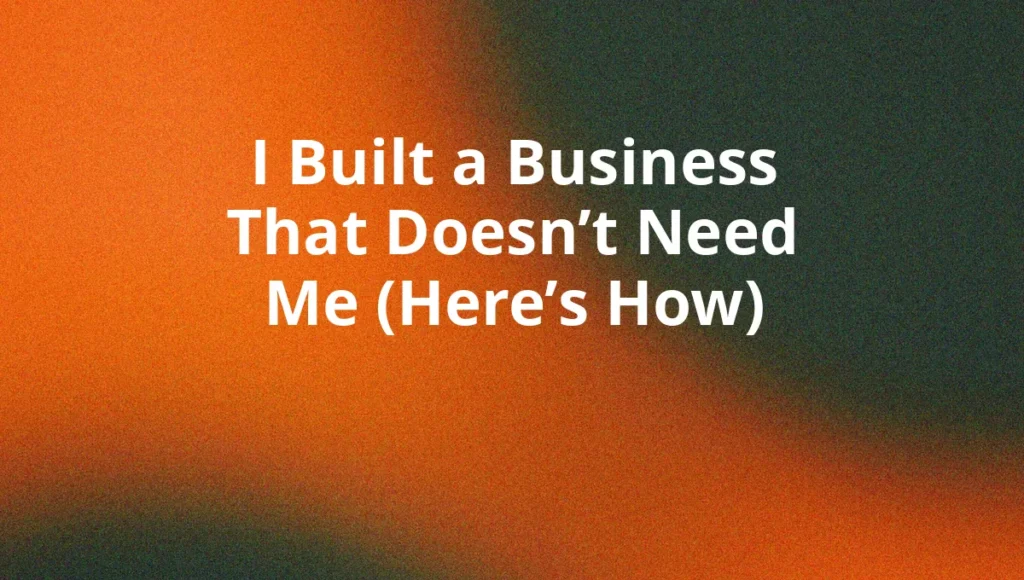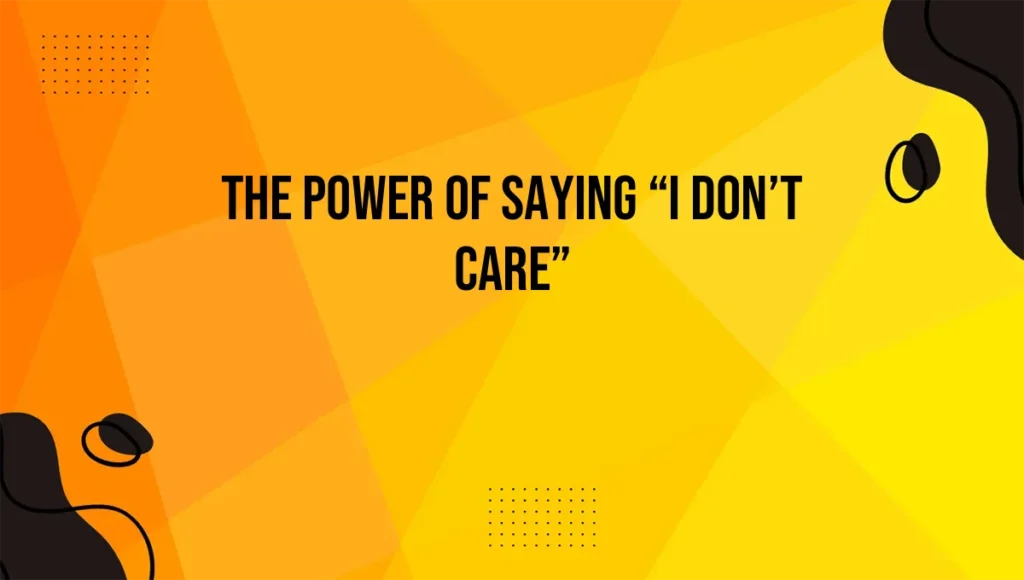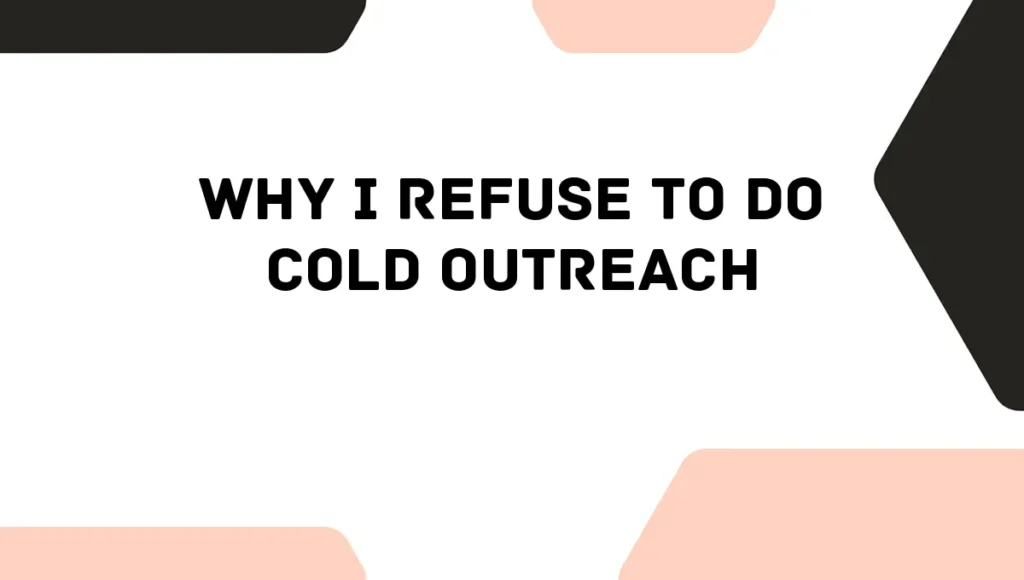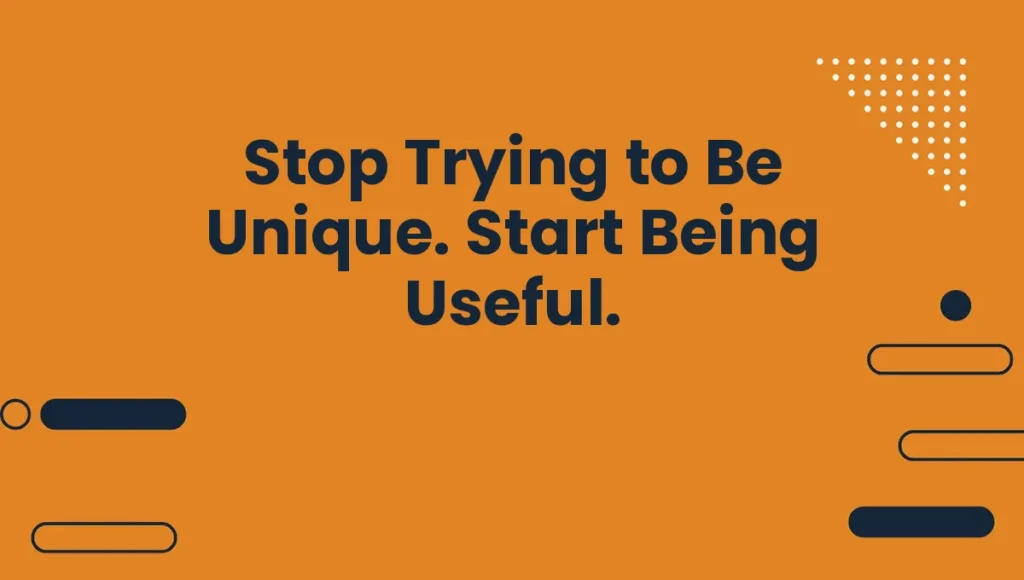I can’t help but chuckle whenever I stumble across another post about the endless pursuit of uniqueness in entrepreneurship. The clichés-a snowflake in a sea of sameness, be the one-of-a-kind unicorn-are everywhere, suffocating the fresh air of practical wisdom.Sure, we all want to stand out in a crowded marketplace. But what if I told you that the relentless chase for “unique” can actually lead you down the wrong path? Instead, it’s time to flip the narrative: stop trying to be unique and start being useful.
Let me take you back a bit. I vividly remember my first few months in the entrepreneurial space. I religiously listened to podcasts, participated in webinars, and devoured every drop of advice about branding and differentiation. I was so consumed with finding that elusive edge that I lost sight of what really mattered: serving people. I was more concerned with how my brand ‘looked’ than how it actually helped others.
Then, somewhere along the journey, a light bulb flicked on. I was getting messages from people in my community about how my content had actually helped them make decisions-real stomach-rumbling decisions around their businesses.And it hit me: that’s what mattered. It wasn’t about being different; it was about being relevant, being useful.
Think about it for a second. The most impactful businesses out there-Uber, Amazon, Airbnb-didn’t reinvent the wheel. They simply filled a gap. They didn’t go out of their way to be quirky or avant-garde. No, they observed pain points and then tackled them head-on.They used a common model but made it convenient,accessible,and efficient.That’s where the magic lies. In utility.
Hear’s the raw truth: uniqueness is frequently enough a facade. Creating something solely to be different is like wearing a costume to feel special. at the end of the day, people don’t care about your pizzazz; they care about their own problems and how you can definitely help them solve those problems.
When I started shifting my focus from being unique to being genuinely helpful, everything changed. I started asking myself one simple question: What is the single biggest challenge my audience faces? I turned my content, products, and services into tools that could transform lives rather than mere portfolios to show off in a gallery. it was a game changer.
And then there’s the mindset shift. We need to unlearn the notion that being unique is synonymous with being successful. That’s a trap many first-time entrepreneurs, and frankly, seasoned ones too, fall into. They chase the mirage of originality instead of building something that makes a difference. Here’s the kicker: some of the least ‘unique’ ideas can be the most impactful because they actually resolve issues.
Don’t overlook the power of simplicity in your offerings. Look at how minimalist brands capture attention [yes, I’m looking at you, Apple]. They don’t reinvent technology every year; they simply refine it, making it easier for users. they focus intensely on user experience, making each touchpoint meaningful. Here’s the wild thing: you can do the exact same in your domain,whatever that may be.
Now, let’s address a common hesitation that often pops up during this shift. “But what if I blend in too much? What if I lose my brand identity?” Here’s a controversial truth: your brand identity doesn’t come from the elements that set you apart, but rather, it’s defined by how well you serve your audience. If you’re obsessed with usefulness, your brand will take shape naturally. Authenticity emerges from consistent, value-driven actions rather than flashy gimmicks.
Let’s not forget the power of storytelling in this landscape. When I started focusing on real, relatable narratives instead of trying to fabricate a unique brand story, something clicked. People connected with what they felt was genuine. Vulnerabilities, missteps, and lessons learned-those were the elements that built rapport and trust. That’s the real essence of engagement.
If you’re ready for a radical conversion, drop the need for uniqueness. Embrace the mindset of continuous improvement. Engage deeply with your audience. Ask for feedback, not just to tick a box, but to truly understand and iterate. Each session,each conversation can yield insights that help mold your offering into a beacon of utility.
Here’s the honest takeaway: the entrepreneurial journey isn’t about how unique you can be; it’s about how profoundly you can be of service. Make it your mission to be useful, and watch as the authenticity unfolds. it’s not about your singularity; it’s about the collective impact you can make. Find joy in the process, and soon enough, success will knock on your door-not because you chased being unique, but because you became indispensable.
